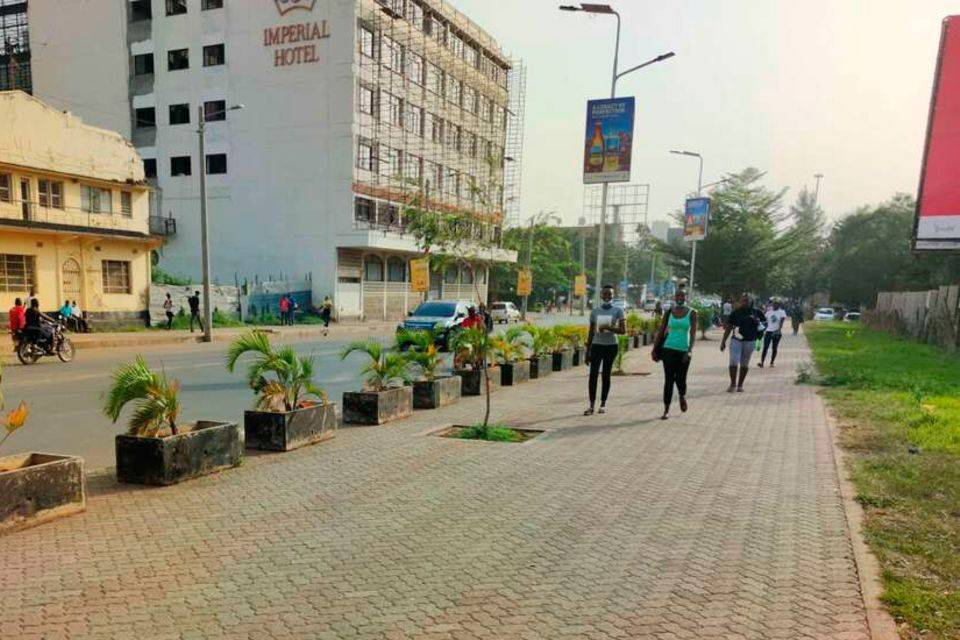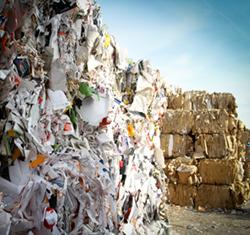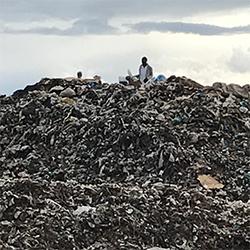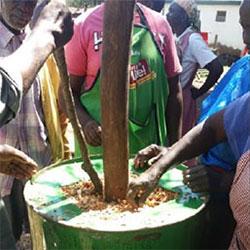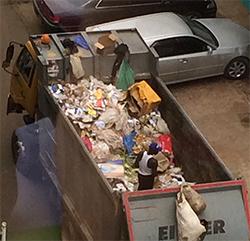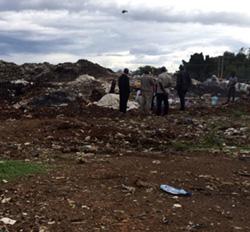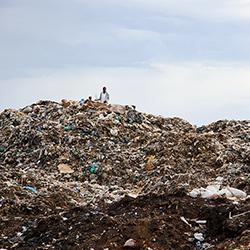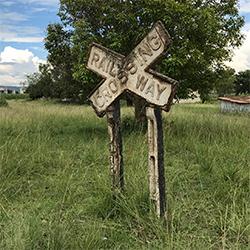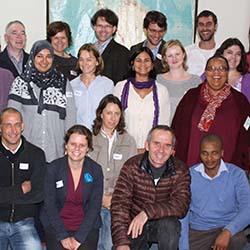Kisumu city in Kenya is overwhelmed by growing waste generation and limited capacity to expand collection services. Most of the waste of the informal settlements is not collected, posing great health and environment hazards.
Several attempts have been made to improve the waste situation. These initiatives have generally been unsuccessful in reaching sustainable solutions.
To move forward, a co-production knowledge process on waste management was initiated by Kisumu Local Interaction Platform (KLIP) in 2010, with the overall objective to enhance the waste management value chain and maintain a clean and healthy environment. Solid waste management emerged as a research project from KLIP’s organised stakeholders’ interactive workshops that identified two thematic research areas; market places and eco-tourism. The solid waste actors in Kisumu include both formal actors registered by city or government authorities, and informal non-registered individuals and groups handling waste through collection, transport, reuse, recycling or disposal. At the lowest level, these include individual waste pickers who scavenge valuable materials to sell to other operators in the waste management system.
Engaging stakeholders
The research team identified relevant local waste actors and presented them with the overall research concept, objectives and the prospects to find solutions together. The City Director of Environment, representatives of several local private companies and local community-based organisations handling waste were included in the research team. Pilot facilities were set up for waste recycling and transfer, testing and developing new approaches and technologies for collecting and handling waste. Data were collected through questionnaires and results were validated in workshops and a meeting with other local waste actors. Informal actors and individuals earning their living by picking waste at dumpsites, collecting waste from households, selling materials for recycling, and transporting waste from one point to another were included.
The significance of a temporary occupation licence
The project set up experiments at a site managed by the waste actors, Kibuye Waste Management CBO. To ensure official recognition and authority to set up experimental work, the researchers requested a temporary occupation licence from city authorities, to officially allow for use of public space. The license signalled a recognition of the informal waste actors and commitment to the research by the city authorities. This was important to create trust among the actors and motivated other waste actors to engage in the project. Research collaboration activities were set up in other spaces close to the community such as the Kachok dumpsite and Arina Estate, making it possible for small-scale actors to take part. These also served as testing and learning grounds for new technology.
An empowered network
The concentration of co-production research activities at a specific physical site where different actors involved in waste management could meet, opened new opportunities for collaboration. For example, individual waste pickers caught sight of benefits in co-ordinating their activities to share the costs of transport, while waste pickers could collaborate with those recycling waste to provide better quality materials. Learning from one another and co-developing better solutions, the waste actors soon formed a co-operative network – Kisumu Waste Actors Network Co-operative (KIWAN). This included both formal and informal actors involved in handling waste. The members elected their leaders, who later were included in the research team.
Through the co-operative, the waste actors as a whole were in a better position to interact and formally negotiate with the city officials on how to keep the city clean. Appreciating the benefits of the collective efforts, the city formally recognised KIWAN co-operative and issued its individual members with recognition letters. KIWAN is currently at the forefront in discussing issues of solid waste with the city, as well as mobilizing and organizing the waste actors’ participating in the city waste management activities. To mobilize resources for effective operations, the organization also provides loans to individual members. Loans are repaid on a monthly basis with interest that is later distributed to members as dividends at the end of the year.
Challenges
The solid waste management research resulted in longstanding relationships and the building of trust between city authorities, local waste actors and university researchers. City officials were invited to review and develop a waste management business plan. To signify co-ownership of the research, city officials were included as co-authors of scientific articles together with academic researchers, with both groups gaining deeper understanding of each other’s viewpoints on issues of waste management. All results were also validated through workshops with relevant stakeholders. When waste actors contributed by collecting data, they would be called to a workshop where the researchers presented how they had analysed the data and what they had found. The waste actors then gained a better understanding of the situation and the outcome of their research, hence also contributing towards potential solutions. In some cases, preliminary results were validated through workshops with waste actors in the absence of city officials in order to get their direct feedback, and reduce the likelihood of negative reactions from city officials to project findings.
Text by Michael Oloko and Jan Riise
Photo: Pavements in Kisumu, May 2021, picture Ckodero, CC-BY-SA 4.0 (wikimedia commons)
